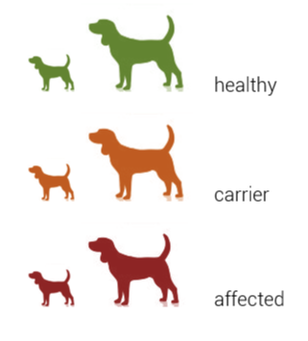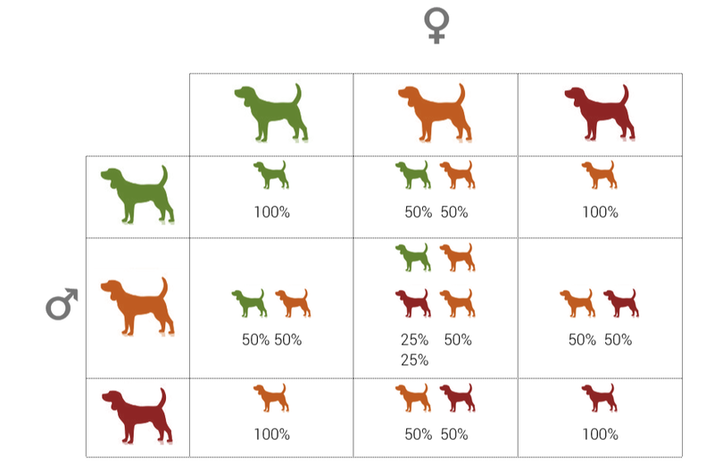 This post will discuss the importance of buying a puppy from a breeder who examines the DNA of their breeding stock and what to check for when given a copy of a DNA panel. We will discuss in a future post why you might think about DNA testing your own dog, particularly if you adopted, bought from a pet store, or acquired a puppy without checking the breeder's credentials. Many health issues that might affect Cavalier King Charles Spaniels can be financially and emotionally draining for their owners. The ability to detect dogs who were at risk of passing on major genetic problems wasn't available years ago, but that problem has been solved thanks to comprehensive DNA testing for dogs. In today's market, any trustworthy breeder should be able to talk to you about the role DNA plays in their breeding program, provide you with the results of any testing they've done and understand the potential impacts of DNA on your particular dog. This post will go over the fundamentals of determining whether a dog is genetically clear (healthy), a carrier (healthy but able to spread the disease to puppies) or impacted (unhealthy and will pass on the disease) before talking about specific genetic diseases that plague this breed. CLEAR - This is the benchmark: CLEAR. This canine is free of any genetic defects. As a result, they are not vulnerable to any diseases checked by the panel and do not possess any genetic defects that could be passed on to their offspring. Please note that a DNA clear dog is not clear of ALL defects, just those we can detect through genetic testing. Some issues in this breed, such as MVD (mitro valve disease) are not detectable by DNA panel. CARRIER - A dog containing one (1) gene for a genetic abnormality is called a "carrier." They can transmit the gene to their puppies, but the puppy won't exhibit the disease as they don't carry the two genes necessary to make them at risk. Thus, the gene won't affect them (they will never get the defect). There is a misconception among some consumers that carriers shouldn't be bred. Breeding carriers is safe, but they should only be bred with a dog that has tested negative for that condition so that none of the puppies are at risk. If we eliminated all carriers from our gene pool, we would cause more problems from inbreeding than we are solving by not producing gene carriers. AFFECTED - A dog who is impacted (or at risk) is one that contains two copies of the gene for a trait, making them susceptible to the disease. This dog can still be breed but only with a clear dog. However, it's not ideal, as all of their offspring will be carriers. Due to the likelihood that the dog would develop symptoms of the genetic disorder, you should avoid buying a dog that is affected by it. The diagram below helps put this information in context. Green is great. Orange is good. Red is a concern.  Knowing the differences between the clear, carrier, and impact can help you determine which genetic testing is crucial for this breed. A trustworthy breeder should test, at the very least, for the following things: CAVALIER KING CHARLES SPANIEL -
We get many questions about IVDD from our puppy purchasers as it relates to the Cavalier. We do not list that above because greater than 90% of all Cavaliers have IVDD. If you are interested in learning more about IVDD, please search "IVDD" on our blog to learn more. A trustworthy breeder cannot be created by DNA testing alone. Further breed-specific heart, eye, hip, & related testing must also be conducted and offered. Please go to our blogs on the OFA as part of your puppy search for more details on those tests. If you want to know more about DNA testing your dog before breeding or identifying any potential health issues, we highly suggest Embark because they handle all of our DNA testings and are a paid advertiser for our instructional content. Please read this post, which offers Embark savings and a sample Embark report.
0 Comments
Leave a Reply. |
FTC DISCLOSUREThis blog contains affiliate links. I may earn commissions from qualifying purchases made from links on this blog. We do not recommend any products that we do not purchase and use for our dogs. Categories
All
Archives
June 2024
|
 RSS Feed
RSS Feed